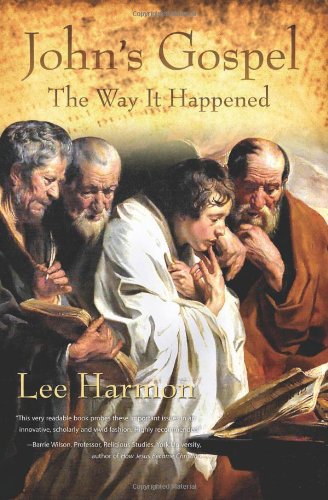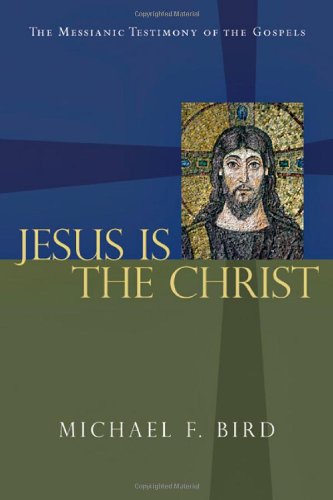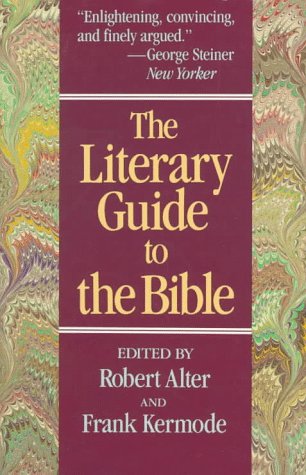Proverbs 9:4-6, Is Wisdom an Adulteress?
“Let all who are simple come to my house!” To those who have no sense [Wisdom] says, “Come, eat my food and drink the wine I have mixed. Leave your simple ways and you will live; walk in the way of insight.”
//Today’s verses describe Wisdom as a woman who stands at the door of her house, calling to the senseless, offering food and drink.
A strange picture … indeed, a very strange picture, given how close it matches this description just two chapters earlier of a adulteress:
At the window of my house I looked down through the lattice. I saw among the simple, I noticed among the young men, a youth who had no sense. He was going down the street near her corner, walking along in the direction of [the adulteress woman’s] house at twilight, as the day was fading, as the dark of night set in. Then out came a woman to meet him, dressed like a prostitute and with crafty intent. … She took hold of him and kissed him and with a brazen face she said: “Today I fulfilled my vows, and I have food from my fellowship offering at home … Come, let’s drink deeply of love till morning; let’s enjoy ourselves with love!” –Proverbs 7:6-19
So Wisdom, personified, lurks at the door of her house, watching for the senseless, tempting him with food and drink like an adulteress? Can this possibly be a coincidence?
I’m afraid I have no explanation for this one.
Book review: John’s Gospel: The Way It Happened
by Lee Harmon
★★★★★
My thanks to Susan Peck and My Cozie Corner for this five-star review of my latest book:
*********
Lee pens “John’s Gospel: The Way it Happened” in a story line that interweaves fact and fiction which is easy to understand, and I found quite enjoyable to read. It’s a fascinating way to take a look at the Gospel of John as it teaches you along the way. My only regret is that I wished I had read Lee’s first book “Revelation: The Way it Happened” as I had the feeling I was missing some key points on the characters. As my son had said “If the whole Bible read this way, it probably would make a bit more sense and more fun to read” (yes he has read the Bible from cover to cover). A must read for all Christians and who are open to another person’s take on the Bible.
I give “John’s Gospel: The Way It Happened” a 5 star rating.
*********
For more, go here http://coziecorner.blogspot.com/2013/06/book-review-johns-gospel-way-it.html

Matthew 6:24, The Only Wrong Religion?
You cannot serve both God and money.
//One time a Samaritan woman asked Jesus whether it was appropriate to worship God on the holy mountain of Samaria or the holy mountain of Judea? It was paramount to asking whether the Jews or the Samaritans had the right religion.
Jesus’ answer was neither.
One time the disciples of Jesus came to him, distraught that another person they didn’t know was baptizing in his name. Couldn’t Jesus make him stop?
Jesus’ answer was that the man was not against him, so he must be on Jesus’ side.
There is, in fact, only one “religion” that Jesus ever condemned. One worship that is unquestionably wrong.
It is the worship of money.
Leviticus 7:30, How Much Should You Tithe?
And all the tithe of the land, whether of the seed of the land or of the fruit of the tree, is the LORD’s. It is holy to the LORD.
//While there is no mention of tithing in the New Testament—instead, the apostle Paul boasted about preaching the gospel freely—many churches today continue to request donations in terms of a tithe. So, how much should you put in the plate? What’s the Biblical answer?
First, don’t put money in the plate. Bring one tenth of your garden, as today’s verse commands. The word “tithe” literally means one tenth. But that’s not all you should bring. That’s just the general tithe.
Deuteronomy 14:22 says you should give another 10% of your crops in the tithe of the sacred meal.
Deuteronomy 14:28 then says every third year you need to bring another tenth for the poor.
That’s 10% + 10% + another 10% every three years, for a tithe of about 23%. That’s an awful lot of produce, so make sure you join a church with very large collection plates.
But here’s good news. Deuteronomy 14:24-26 explains that if turns out to be too much for you to carry, you may convert it into cash. Bring the money in your hand to the place “the Lord chooses,” and there exchange it for oxen, or sheep, or wine, or whatever you wish so that you will have an appropriate tithe to give.
1 Kings 9:15, Solomon Builds a New Egypt
Here is the account of the forced labor King Solomon conscripted to build the LORD’s temple, his own palace, the terraces, the wall of Jerusalem, and Hazor, Megiddo and Gezer.
//Let me lead into this topic with an odd verse in Revelation.
And their dead bodies shall lie in the street of the great city, which spiritually is called Sodom and Egypt, where also our Lord was crucified. –Revelation 11:8
This verse has long puzzled scholars, because by its context it’s clearly speaking of Jerusalem. Jerusalem is often compared to Sodom, but where is Jerusalem “spiritually called Egypt?” No such scripture has been found, leading to some wild speculation.
It’s with this question in mind that I approach today’s verse about the kingdom of Solomon.
I’ve long known that King Solomon used slave labor for the construction of God’s temple. But I had never paid attention to today’s verse, telling how he also built three cities with the help of slaves.
What’s the big deal? It’s this.
They’re military bases. Solomon used his massive wealth to construct the House of God in Jerusalem, and then he used his massive wealth to protect it. God’s holy home required slaves to build it, and then slaves to construct military bases to protect it. Then Solomon used his wealth to secure “fourteen hundred chariots and twelve thousand horses” for his army, which he stationed in the cities and with him in Jerusalem.
Know where these military chariots and horses came from? Egypt. The nation that kept the Hebrews as slaves for 400 years, and then pursued them as they escaped, using … yes, chariots and horses.
In less time than it took Israel to escape from the Pharaohs, Jerusalem had become the new Egypt. Could this be what Revelation is referring to?
Book review: Jesus is the Christ
by Michael F. Bird
★★★★★
So when did Jesus’ followers begin to proclaim him the Messiah? Michael Bird argues that Jesus deliberately acted out a messianic role, and that his followers would hardly have proclaimed Jesus to be the Messiah against Jesus’ own self-understanding. I needed no convincing on this topic, but if I did, the introduction to Bird’s book alone provides evidence enough. Indeed, I found the long introduction to be the most thought-provoking part of the book!
After the introduction the book settles down to a methodical look at each of the four gospels and their unique contribution in portraying Jesus as the Judaic Messiah. I found Bird’s examination of the gospels less bold, but no less interesting and informative. The question to be answered seems to shift from When did Jesus become known as Messiah? to How clearly is Jesus portrayed as Messiah? Bird describes the gospels as “stained-glass windows offering different shapes and colors about a figure they all regard in their own unique way as the long-promised Messiah.” He reads them this way:
Mark: The Crucified Messiah
Matthew: The Davidic Messiah
Luke/Acts: The Prophetic Messiah
John: The Elusive Messiah
The three main titles that Bird examines are Son of Man, Son of God, and Son of David. Each, he argues, is a messianic expression. The Gospel Christology thus is a form of messianism and must be understood in that light.
Bird’s writing is scholarly, precise, and well-argued, with lots of references and endnotes. I’ll definitely be picking up more books from this author.

Genesis 11:9, Babel: Divinely Sanctioned Pluralism?
Therefore is the name of it called Babel; because the LORD did there confound the language of all the earth: and from thence did the LORD scatter them abroad upon the face of all the earth.
//Here’s a different way of looking at the Tower of Babel.
In the days of Babel, the people of the earth had one religion, one goal, and were sharing together in their reach toward heaven. God had intended that mankind would “fill the earth,” and instead, mankind had consolidated in religious agreement.
God wasn’t happy. This was not what he had in mind. So, he scattered the people and confused their language. This scattering was not a curse … it was redirecting people away from a unified system, toward God’s purpose for humankind. The pluralism that resulted was a divine act of God. Now, people had to accommodate their differences and rely upon God, accepting the challenge of different thinking, different religion. This pluralism is God’s plan for human flourishing, so that we can see God at work in many and various ways.
What do you think? This line of thought comes from Prodigal Christianity, by David E. Fitch and Geoff Holsclaw.
Mark 6:5, Could Not or Would Not?
And he could there do no mighty work, save that he laid his hands upon a few sick folk, and healed them.
//Jesus, as I’ve pointed out before, is the most human in the Gospel of Mark. In today’s verse, he is unable to heal, presumably because of the people’s unbelief. But when Matthew gets hold of the story, he rewrites it like this:
And he did not many mighty works there because of their unbelief. –Matthew 13:58
So in Matthew’s rendition, Jesus chooses not to do miracles in his hometown of Nazareth. My question for you is, which do you prefer? That Jesus could not or would not heal? Which is better: that Jesus tried, but failed, or that he decided to leave people in their misery?
I side with Mark on this one. The problem of evil is a serious deterrent to Christianity for some, including myself, and I would much rather believe God could not prevent the holocaust, or AIDS, or Japan’s tsunamis, or any other catastrophic evils rather than that he callously chose not to.
Ephesians 3:21, Did Paul Write the Book of Ephesians?
To Him be glory in the church by Christ Jesus to all generations, forever and ever. Amen.
//That’s how this book of the Bible ends: with praise to God and an exhortation for the church to give glory to God through the ages…”all generations, forever and ever.”
Huh? What happened to Paul’s admonition that people not bother to get married, or make any major changes in their life, because the present world was about to end? (1 Corinthians 7:25-31). Where is the Paul who wrote that many of the people around him would live to see the return of Christ? (1 Thessalonians 4:15-17).
Has Paul changed his mind? It’s possible, but this is just one of many passages that cause critical scholars to doubt that Paul was the author of the book of Ephesians. The seven epistles universally considered authentic to Paul are these:
Romans
1 Corinthians
2 Corinthians
Philemon
Galatians
Philippians
1 Thessalonians
Book review: The Literary Guide to the Bible
Edited by Robert Alter and Frank Kermode
★★★★
I’ve had this book for quite a while, but used it only as an occasional reference. I finally decided to read it all the way through, and I’m glad I did, though it definitely took a while. Perhaps two dozen authors provide coverage of nearly every book of the Bible, plus a collection of general essays thrown in at the end for good measure.
This collection isn’t meant as a ministerial aid. It’s a book-by-book journey into the richness of the Bible’s presentation. The Old Testament coverage focuses heavily on the poetic structure and literary qualities of the writing. As a result, books you may consider dry—like Isaiah—become stunning in their literary beauty, while other books that contain fascinating stories and theological depth—like Genesis—can appear ugly and boring by comparison.
While the Old Testament focuses more intently on literary style and presentation, the tone shifts when the topic moves from the Hebrew Old Testament to the Greek New Testament. Here, the emphasis is more on historical-critical exegesis, and what the New Testament writers were trying to tell us about the Christian movement in their own day. While Christian writings do build heavily on an Old Testament foundation, they derive not from the poetic Hebrew but from the ghetto-Greek of the Septuagint. Thus, cadence gives way to content, but the coverage is no less interesting.
I toyed with the idea of doing two book reviews: one for the Hebrew Bible and one for the Christian writings. They are that different. My favorite topics, for four entirely different reasons, were:
- Isaiah, by Luis Alsonso Schokel, which is a exquisite collection of poetry by three or more authors.
- Jonah, by James S. Ackerman, is exposed as a literary masterpiece.
- The Gospel of Mark, by John Drury, is an interesting portrayal of a human Jesus hardly devoid of emotion.
- The Pauline Epistles, by Michael Goulder, provides a glimpse into the mind of a fascinating and influential apostle.

















 354 Circles
354 Circles
 603 Goodreads Friends & Fans
603 Goodreads Friends & Fans

 Hello! I'm an author, historical Jesus scholar, book reviewer, and liberal Christian, which means I appreciate and attempt to exercise the humanitarian teachings of Jesus without getting hung up on any particular supernatural or religious beliefs.
The Bible is a magnificent book that has inspired and spiritually fed generations for thousands of years, and each new century seems to bring a deeper understanding of life’s purpose. This is true of not only Christianity; through the years, our age-old religions are slowly transforming from superstitious rituals into humanitarian philosophies. In short, we are growing up, and I am thrilled to be riding the wave.
I avidly read all thought-provoking religion titles. New authors: I'd love to read and review your book!
Hello! I'm an author, historical Jesus scholar, book reviewer, and liberal Christian, which means I appreciate and attempt to exercise the humanitarian teachings of Jesus without getting hung up on any particular supernatural or religious beliefs.
The Bible is a magnificent book that has inspired and spiritually fed generations for thousands of years, and each new century seems to bring a deeper understanding of life’s purpose. This is true of not only Christianity; through the years, our age-old religions are slowly transforming from superstitious rituals into humanitarian philosophies. In short, we are growing up, and I am thrilled to be riding the wave.
I avidly read all thought-provoking religion titles. New authors: I'd love to read and review your book!
 Hi! While Lee writes the articles and reviews the books, I edit, organize, and maintain the blog. The views expressed here are Lee's but I'm his biggest supporter! :-)
Hi! While Lee writes the articles and reviews the books, I edit, organize, and maintain the blog. The views expressed here are Lee's but I'm his biggest supporter! :-)
Connect With Me!